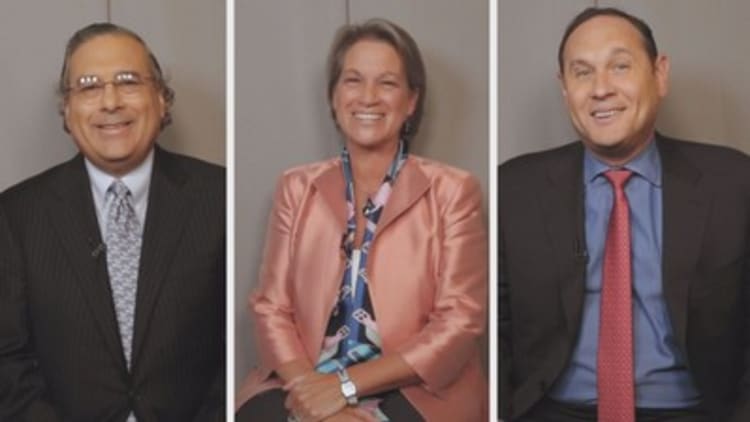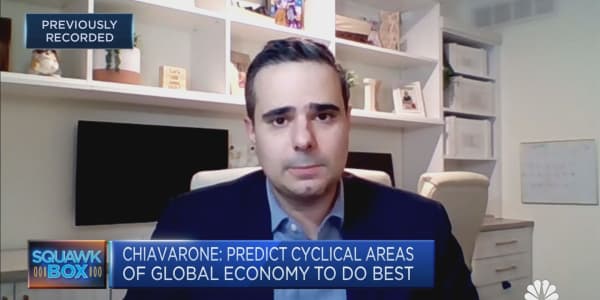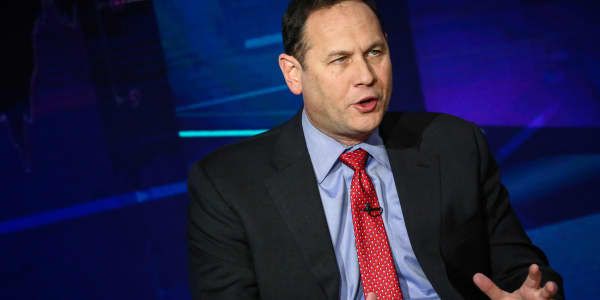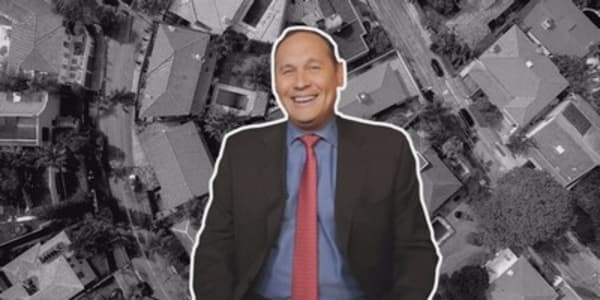It's been a decade since the last financial crisis. We asked three market experts, that manage more than $900 billion in combined assets, for their outlook on what will cause the next one and when we could expect it.
Here’s what they said:
Suni Harford, head of investments at UBS Asset Management
"I am not worried at all about an [imminent] financial crisis," Harford said. "This is a benign, very strong economic environment, and while it will be maybe more volatile than we're used to over the past decade, I think we're in very good shape."
When the next financial crisis does come, Harford says she thinks it'll be one of territorialism, nationalism and some of the issues that will fall out of today's politics.
"The fines that are coming out across the world for individuals are making it more and more difficult for companies to act and invest globally, which makes it that much harder for the world to invest when capital flows are constrained," Harford said. "I have to be nervous about what that could do for a financial crisis situation."
David Villa, chief investment officer of Wisconsin State Investment Board
"I think the next financial crisis is several years into the future," Villa said. "And I think it's going to be triggered by the three classic events: interest rates will peak, the economy will slow down and then defaults will peak."
Villa said the threat of a financial crisis isn't looming just yet, because credit excesses are still within reasonable ranges. They're "not flashing concerns for what we call a train wreck," Villa said.
Marc Levine, chairman of Illinois State Board of Investment
"During my career, there was a modest recession in the 90s that was based off of silly commercial real estate lending, and then we saw the big bubbles in the late 90s with dotcom and crazy valuations of tech stocks and of course the mortgage crisis," Levine said. "I have to tell you, I just don't see these large, fundamental excesses [today]."
That's not to say he doesn't have concerns.
"I see some things that I don't love, like high yield and emerging market debt," Levine said. "But again, those are really modest and they're not going to create these massive, massive problems like those mortgages and mortgage derivatives that completely polluted the global banking system and created a crisis that we're kind of still living through the waves today."
WATCH ALSO: Leon Cooperman reveals what makes a company a good investment






